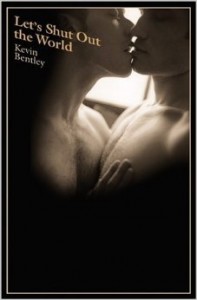 Let’s Shut Out the World
Let’s Shut Out the World
by Kevin Bentley
Green Candy Press. 203 pages, $14.95
IN 2002 Kevin Bentley’s Wild Animals I Have Known: Polk Street Diaries and After was published, complete with an eye-catching cover photo of two young men sharing a casual embrace on a sunlit summer day in the 1970’s. On the inside front cover, the full-sized photo revealed the two to be standing in an enormous Pride Day crowd stretching the length of Castro Street. Like this photo, Wild Animals is focused on the lives of a small circle of men but stands as an exuberant and engaging portrait of an important point of gay history. Reviewing the book in these pages, Andrew Holleran described it as “difficult to put down,” and the praise is deserved: though constructed from diary excerpts, Wild Animals reads like a novel. The book is at once a time capsule, a Bildungsroman, and a compelling portrait of people struggling with love, desire, and identity.
Much the same can be said for Bentley’s follow-up book, Let’s Shut Out the World, a collection of essays, stories, and other short works arranged more-or-less chronologically to come together as a kind of memoir and autobiography.






